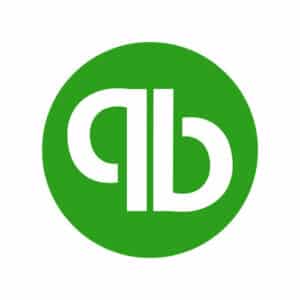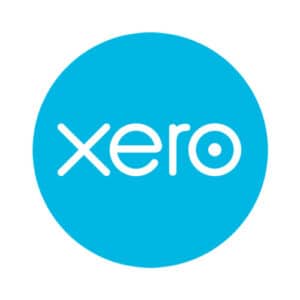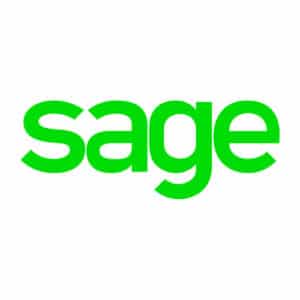In the hotel industry, controlling money is very challenging and time-consuming. To process payments, manage expenses, and provide thorough financial records, the financial side of a hotel company must be exact and fast.
software for hospitality business is very essential to guarantee correct and effective fulfilment of these tasks.
By managing many financial chores, accounting software not only saves time but also reduces the possibility of errors, strengthening your company’s financial foundation.
Importance of Accounting Software in Hospitality
Managing the financial operations of a hotel company calls for an accounting degree. It provides real-time cash data, accelerates procedures, and increases the accuracy of operations.
If you have the correct software, you can easily operate your accounts, monitor your products, handle payments, and create records displaying your financial situation.
Streamline Processes
Creating reports, managing invoices, and tracking spending are among the many financial tasks automatically handled by accounting software.
This technology simplifies bookkeeping and reduces the time required so you can concentrate on other crucial areas of your company.
Improve Accuracy
Hand-entry of data might lead to errors that would throw off your financial records. Accounting software lowers human error possibility by automating data input and computations.
This guarantees the dependability and correctness of your financial records.
Real-time Financial Insights
Having current financial data lets you make fast and straightforward wise decisions.
Real-time financial data lets you monitor your cash flow, check your expenses, and spot patterns that can compromise your company’s financial situation.
Choosing the Right Accounting Software
The financial performance of your company relies on the accounting program you use. Here is a guide on selecting the correct one for you:
Assessing Needs
Establishing your own needs can help you to choose the best accounting program. A small boutique hotel will have different needs than a large, multi-location hotel corporation.
Consider the many locations you supervise, the volume of transactions you handle, and the kind of financial reports you want.
Spend some time thinking about these questions:
How many transactions do we process daily?
Can we make it without being able to manage numerous sites?
How best can we monitor our inventory?
Do we need integrated payroll features?
What types of financial reports do we require?
These questions will assist you in creating a list of key traits and rank them in line with the particular needs of your business.
Features to Look For
Search for features in accounting software packages that fit the needs of your business. Consider some crucial factors as follows:
Multi-location Management
Make sure the application runs smoothly with whatever quantity of sites you have. You should look for a system that allows you to independently monitor the financial situation of every site and provide combined data for the full business.
Inventory Tracking
Choose a program offering exact food and beverage inventory monitoring. Good inventory control can help you maximise your buying choices, reduce waste, and avoid running out of items.
Payroll Integration
Use integrated payroll capability to streamline staff payment processes. Look for any program to manage time tracking, payroll processing, and accurate tax and deduction computation.
Reporting Capabilities
Comprehensive reporting abilities are pretty vital if one is to make wise commercial decisions. Among other financial reports, try to locate software capable of creating profit and loss statements, balance sheets, and cash flow statements.
Recommendations
These are some of the top accounting software options available for hotel companies:

QuickBooks
QuickBooks’ strong features and easy interface appeal to small and medium-sized businesses (SMEs). It offers complete reporting, inventory control, payroll connection, and management of many sites.

Xero
Perfect for businesses demanding strong multi-location management and inventory control. Xero is a preferred tool among hotels because of its simple UI and strong capabilities.

Sage Intacct
Perfect for larger businesses needing advanced and scalable reporting features. Sage Intacct’s strong financial management features include extensive reporting, simple connectivity with other company systems, and handling of many organizations.
Setting Up Your Accounting Software
These steps will make setting up your application simple when you’ve selected it Installation and Setup
Download and Install
Follow the software’s instructions to download and install the application on your computer or website. Before installing software, ensure that your machine fulfils its requirements. This prevents connection issues.
Create an Account
Create a business account and fill it out with information. This usually comprises your company’s name, address, phone number, and GTIN.
Set up Procedure data
The setup procedure requires choosing tax rates, fiscal year, and currency. You must provide your beginning funds and other financial information before starting.
How to Prepare
Configuring Settings
Adjust the program’s parameters to fit your task. This includes tax settings, user jobs and permissions, and a chart of accounts.
Adding Locations, Departments, and Service Categories
To ensure accurate monitoring and reporting, add all relevant facts. To demonstrate this, create distinct accounts for each office, location, and service type.
Integration
POS and Inventory Management
Your finance software should work with your POS and inventory management solutions. Your accounting application will instantly get sales and inventory data. This means fewer individuals will manually input data, which will be more accurate.
Daily Operations
Keeping up with daily financial duties is easy with the correct accounting software. To tackle critical duties, do the following:
Sales Tracking and Management
You must carefully document daily purchases and payments to balance your accounts. Sales monitoring capabilities in your program allow you to track every transaction, including payment methods and customer information.
Inventory Management
Use the program’s inventory management functions to monitor food and drink supplies to prevent running out and having too much. Your accounting software lets you place purchase orders and establish alerts for low stock levels.
Expense Recording
You should regularly record and arrange your expenses to keep track of your expenditures. You must include vendor, payment, and expenditure information when tracking expenses.
Using your program’s expenditure monitoring tools can allow this. Doing this will make tracking your expenditures and finding ways to save simpler.
Payroll Management
Payroll management can be challenging, but accounting software makes it easier:
Setup
Create payroll schedules and enter personnel data. Entering employee information such as names, residences, social security numbers, and pay rates falls under this category.
Processing Payroll
Calculate salary, make deductions, and produce paystubs. Use the payroll tools in your program to add employee earnings, including regular and overtime pay, taxes, and other deductions. Create direct deposit files and pay stubs to facilitate straightforward payment processing.
Tax Compliance
Make sure you’re following local tax laws to avoid fines. Use the tax functions in your program to determine and withhold the appropriate amounts for federal, state, and local taxes. To maintain compliance with tax laws, create and submit tax forms on time.
Reporting and Analysis
You must create and review financial reports if you want to make effective decisions:
Generating Reports
Create many financial records, including balance sheets, cash flow, and profit and loss statements. Create accurate and full records using the reporting features of your application. You can send reports in many formats so they are simple to distribute and modify report forms to suit your requirements.
Financial Analysis
Analyse your financial data to make wise choices. Focus on important performance indicators (KPIs) including cost of goods sold (COGS), labour cost percentage, and cash flow. Apply these concepts to identify patterns, simplify processes, and enable the expansion of your company.
Regular Maintenance and Updates
Maintaining data backed up and software current is crucial for efficiency and protection.
Software Updates
Regular application updates will help you to get the most recent features and safety fixes. Most businesses that provide accounting software routinely offer fixes to problems, make the program safer, and improve its performance.
Data Backup
Frequent backup of your data helps you prevent data loss and maintain the operation of your company. Create routine copies of your financial data using the backup tools in your application. Save your data by keeping backups in a secure location—such as a portable hard drive or the cloud.
Training and Support
You need correct training and assistance if you want to maximise your accounting tool:
Staff Training
Provide your staff training on the program’s features and advised practices to guarantee their competency as users.
Practical training courses, user manual development, and ongoing support help to guarantee that your workforce is competent in using the application.
Seeking Support
Get customer support to help with complex questions and troubleshooting to guarantee your software is always running as it should.
For accounting software, support options usually call for phone, email, and live chat.
Conclusion
Given so many choices, deciding which accounting program would be ideal for your hotel is challenging.
Go no further than Paperchase Hospitality Accountants Our financial ecosystem is backed with world-leading F&B vendors and technology partners who share our commitment of enabling better hospitality. Together, we empower our clients with high-quality financial decision-making tools and services, because hospitality is at our heart
Read more

































